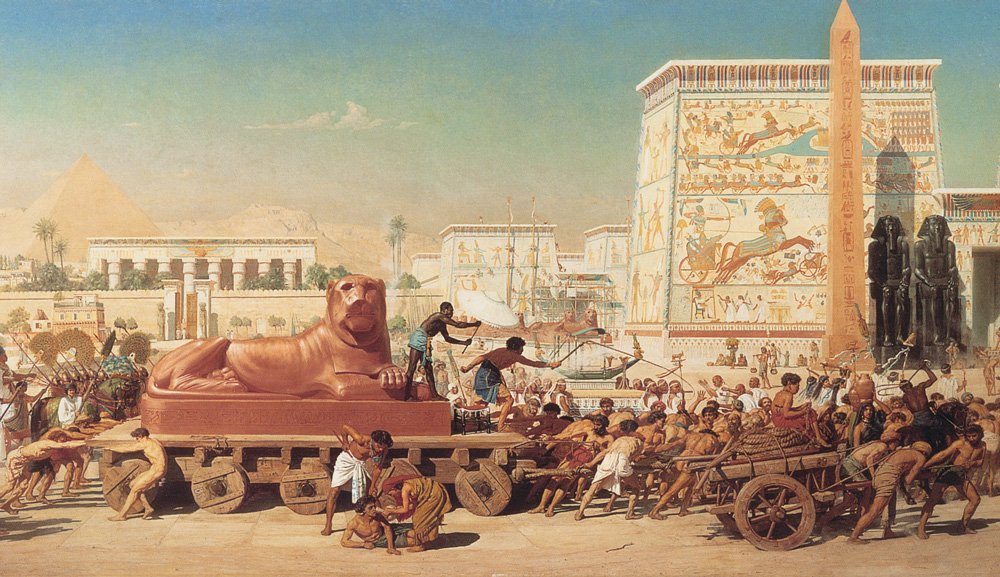
Holiday Marking the Exodus from Egypt
The holiday marking the exodus from Egypt is a significant event in Jewish history and is celebrated annually by Jews around the world. Known as Passover or Pesach, this holiday commemorates the liberation of the Israelites from slavery in ancient Egypt. It is a time of reflection, remembrance, and renewal, symbolizing freedom and the triumph of the human spirit over oppression. In this article, we will explore the history, customs, and significance of this holiday.
Table of Contents
ToggleIntroduction
Passover is a Jewish festival that holds immense importance in Jewish tradition. It is celebrated for eight days, beginning on the 15th day of the Hebrew month of Nisan. Passover serves as a reminder of the Israelites’ liberation from slavery under the Egyptian pharaoh and their journey towards freedom.
Historical Background
The historical background of Passover dates back to over three thousand years ago. According to the Hebrew Bible, the Israelites were enslaved in Egypt for several generations. God heard their cries for freedom and sent Moses as a prophet and leader to deliver them from bondage.
The Story of Exodus
The story of Exodus recounts how Moses confronted the Pharaoh, demanding the release of the Israelite slaves. When the Pharaoh refused, ten plagues were unleashed upon Egypt, culminating in the final and most devastating plague—the death of every firstborn Egyptian. The Israelites were instructed to mark their doorposts with the blood of a lamb so that the angel of death would pass over their homes, sparing their firstborn children.
Passover Customs and Traditions
Passover is rich in customs and traditions that are observed to this day. The central ritual of Passover is the Seder, a special ceremonial meal held on the first two nights of the holiday. During the Seder, the story of the exodus is retold, and symbolic foods are consumed.
The Seder Meal
The Seder meal is a multi-course feast that follows a specific order, outlined in the Haggadah (the Passover guidebook). It consists of various symbolic foods and rituals, including the recitation of blessings, the washing of hands, the breaking of the middle matzah, and the hiding and finding of the afikomen (a piece of matzah).
Symbolic Foods on the Seder Plate
The Seder plate contains several symbolic foods that represent different aspects of the Passover story. These include the shank bone (representing the Paschal lamb), the egg (symbolizing new life), bitter herbs (signifying the bitterness of slavery), haroset (a sweet mixture symbolizing the mortar used by the Israelite slaves), and karpas (a vegetable, often parsley, dipped in saltwater).
Matzah: The Unleavened Bread
During Passover, the consumption of leavened bread is prohibited. Instead, matzah, an unleavened bread, is eaten. Matzah is a simple, cracker-like bread made of flour and water. It serves as a reminder of the Israelites’ hasty departure from Egypt, when they did not have time to let their bread rise.
The Four Cups of Wine
Another important aspect of the Seder is the drinking of four cups of wine, which symbolize the four expressions of redemption mentioned in the Exodus narrative. Each cup is drunk at specific points during the Seder, representing different stages of the Israelites’ journey from slavery to freedom.
Passover Songs and Hymns
Passover is accompanied by a rich musical tradition, with various songs and hymns sung during the Seder. One of the most well-known songs is “Dayenu,” which expresses gratitude for the blessings bestowed upon the Israelites throughout their liberation.
Passover Celebrations Around the World
Passover is celebrated by Jewish communities around the world, each adding their unique cultural and regional customs to the holiday. From traditional Jewish communities in Jerusalem to Jewish families in New York City, Passover is a time of gathering, storytelling, and celebration.
Passover and Its Significance Today
Passover holds deep significance for Jews, not only as a historical event but also as a time of reflection and renewal. It serves as a reminder of the ongoing struggle for freedom, justice, and human rights, and the importance of standing up against oppression in all its forms.
Conclusion
Passover is a holiday that celebrates the liberation of the Israelites from slavery in Egypt. It is a time of remembrance, reflection, and renewal, symbolizing freedom and the triumph of the human spirit. Through the Seder meal, symbolic foods, and rituals, Jews around the world come together to retell the story of Exodus and pass on the lessons of the past to future generations.
FAQs
- What is the significance of Passover? Passover commemorates the liberation of the Israelites from slavery in Egypt and serves as a reminder of the ongoing struggle for freedom and justice.
- How long does Passover last? Passover lasts for eight days, beginning on the 15th day of the Hebrew month of Nisan.
- What is the Seder meal? The Seder meal is a special ceremonial meal held on the first two nights of Passover, during which the story of the exodus is retold.
- Why is matzah eaten during Passover? Matzah is eaten during Passover as a reminder of the Israelites’ hasty departure from Egypt, when they did not have time to let their bread rise.
- How is Passover celebrated around the world? Passover is celebrated by Jewish communities around the world, each adding their unique customs and traditions to the holiday.

Leave a Reply